When I hear the name Sennheiser, I think “high quality German engineering with refined audiophile sound.” I’ll tell you what I don’t think of: Ireland. Until recently I had no idea that Sennheiser, a key player in the nearly $3 Billion audiophile headphone market, had an office in Ireland, let alone a high tech headphone manufacturing plant. The company invited me and a few fellow journalists out to the land of leprechauns and lush landscapes to check out the facility and I left more than a little impressed.

Founded by Fritz Sennheiser in a farmhouse in rural Germany just after World War II, the company initially manufactured measuring equipment including a variety of precision microphones. In 1968, the company expanded into headphones with the HD414, the world’s first open-back headphones. These proved to be one of the top-selling headphone models of all time. 56 years later, the company continues to offer spare parts for the HD414 including the cables and iconic yellow foam ear pads. Sennheiser expanded its headphone line-up in the 1980s and 1990s with several consumer and professional models. The company established itself as a leader in audiophile grade headphones for home, travel and studio.

In 2021, Sennheiser’s Consumer Audio Group was acquired by Sonova Holdings Group, a Swiss company that specializes in medical devices including hearing aids and cochlear implants. Nearly three years later, this acquisition hasn’t seemed to hurt the brand’s focus on high-end headphones. Sennheiser’s audiophile products still appear to be thriving in a highly competitive market.

High Tech Meets High Touch
Today, at the company’s factory in Tullamore, Ireland, Sennheiser assembles not only the final headphones, but the individual drivers used by these very headphones. Separate lines house the manufacturing of the tiny transducers in the company’s IE600 and IE900 in-ear monitors as well as the beefier drivers used in the company’s over-ear audiophile models like the HD820, HD600 and HD650. Sennheiser’s robotic helpers solder, bond, glue, inject and mould the raw metallic and composite materials together to form the components that make up each pair of audiophile headphones.

While the construction is primarily driven by these automated precision devices with sub-millimeter tolerances, there are more than a few humans milling about to keep these robots in line. People also perform the final assembly of both the headphones and the packaging. It’s remarkable seeing just how quickly and precisely a well-trained human can assemble the various components into a finished pair of headphones.
With a few well-placed folds, these same people build the products’ boxes as well, gently placing each finished pair of headphones into its respective container to begin its journey to distribution centers, store shelves and finally into the excited hands (and ears) of a customer. But this happens only after each pair of headphones is placed into an anechoic test chamber to verify its performance. The company leaves nothing to chance when it comes to product quality and customer satisfaction.

Amongst all this noise and kinetic energy, in a private design studio in a corner of the factory floor, something special is happening. To understand what and why requires a small sidebar back in time.
Orpheus Unveiled
It’s 1991. Sennheiser has been growing its reputation and its marketshare through evolutionary products which built upon their predecessors. But the company feels a need to make a statement, to cement its position in high-end audio. So Sennheiser creates its first cost-no-object no-holds-barred flagship pair of headphones.

The Sennheiser Orpheus Electrostatic HE90 headphones took the audiophile world by storm and were considered by many to be the best headphones in the world. The Orpheus system originaly sold for $16,000 (the equivalent of about $36,000 in 2024 dollars). Production was limited to just 300 units, but was later expanded to 330 units by popular demand. When the Orpheus system went out of production in 2005, its presence was missed. And it would be some time before a pair of headphones could rival it.
A Legacy Renewed
In 2015, Sennheiser set the audiophile world on its ear again with their latest flagship in the Orpheus family: the HE1 Electrostatic headphone system. In 2019, production of that flagship headphone system came to Tullamore, Ireland.

Alone in his studio within the Sennheiser factory, Master Technician Damien assembles the HE1 system from the highest quality raw materials, spending up to two weeks manufacturing each unit. Currently selling for $70,000, the HE1 system includes its own D/A converters and vacuum tube preamplifier encased in a solid block of Italian Carrara white marble. Hey, if it was good enough for Michelangelo, it’s good enough for me. The stone’s inertness and freedom from vibration make it an excellent housing for audio gear. It’s also drop-dead gorgeous.

The HE1 headset itself is comprised of luxurious leather, foam, aluminum and velour to assure longevity and comfort, even for extended listening sessions. The headset includes its own solid state MOSFET amplification running in pure Class A mode for the truest fidelity sound. The 2.4-micrometer platinum-vaporised diaphragms were developed in-house by Sennheiser engineers over decades of listening and design research in a quest to find the “perfect transducer.” As a system, the headphones are said to reproduce sound beyond the limits of human hearing, from 8 Hz to more than 100 kHz with less than 0.1% distortion at 100 dB. But don’t let your dog try them. He may not let you have them back.

The on-board DAC (Digital to Analog Converter) handles conversion of CDs, MP3s, lossless FLAC files, or High Resolution audio datastreams to pure analog waveforms. I should say “DACs” though as there are actually eight high-end ESS Sabre ES9018 DACs on-board, four dedicated to each channel. Digital sources can be connected via S/PDIF coax and fiberoptic inputs as well as a USB port. The unit also supports analog sources with both unbalanced RCA and balanced XLR inputs. In addition to the main headphone outputs there is a second headphone output on the rear as well as balanced XLR and unbalanced RCA stereo analog outputs for connection to an outboard amplifier.

To begin my own listening session, I lifted the remote control, which itself weighs more than one would expect and feels like it would survive Armageddon. Pressing power on the remote, the system revealed itself: satin finished chrome-plated solid brass dials and knobs emerged, presenting themselves for my tactile pleasure; glowing vacuum tubes rose up to greet me and the integrated smoked glass headphone compartment door opened upward to reveal the prize hidden within: the HE1 headphones themselves. The glass vacuum tubes are themselves encased within secondary glass tubes (Quartz, actually) in order to maintain fidelity and to further isolate them from vibration or resonance.

While the HE1 headphones are large, they don’t feel heavy. They sat firmly on my head, fitting snugly enough to eliminate outside distractions without feeling the least big tight or uncomfortable around my ears. I listened to a variety of tracks both on vinyl and on CD for about 30 minutes, including a sampling of jazz and rock.
Daft Punk’s “Random Access Memories” is a wonderfully recorded album, with which I am intimately familiar. On the HE1 it is no exaggeration to say it sounded as if I were there in the studio with the musicians. Bass drum and bass guitar had deep extension while still having a snappy percussive attack. Cymbals and hi-hats sounded crisp and organic. Voices had perfect timbre and floated ethereally in space. The soundstage presented by the HE1 was not huge and expansive; more intimate and engaging. It was as realistic a reproduction of recorded sound as I’ve ever heard. Sonic nirvana achieved? It appears so.
As for hearing the HE1s for yourself, I highly recommend it, even if a pair of $70,000 headphones is a bit outside your current budget. The Sennheiser factory in Ireland sometimes hosts a “listening experience” and local Sennheiser dealers occasionally offer free listening sessions. Also, the HE1s will be on-hand at the upcoming CanJam headphone show in New York City in March. Tickets for that event are available online. Listening sessions for the HE1 may already be fully booked, however, so you may need to get on a waitlist for that.
Putting Us to Work
Meanwhile back on the assembly line, the Sennheiser folks invited us to help with final assembly on a pair of HD650s. It was a relatively straightforward affair, fitting plastic frames together, attaching foam cushions to earcups, earcups to headbands all with a satisfying “thunk” and “snap.” Assembling the box was only a bit trickier, with an origami-like fold of a single piece of cardboard. Once assembled, “my” HD650s went into the anechoic test chamber and passed the frequency sweep with flying colors. All in all this basic final assembly took me about 15-20 minutes. The small team of seasoned factory technicians are far more efficient and can assemble several hundred of these headphones in a day.

The Future Sounds Impressive
After the factory tour and listening sessions, we met with company engineers and executives in a round table discussion to chat about future headphone products and ideas the company currently has in development. Company execs asked for our opinions on current and future products, positioning, features and brand perceptions and we were happy to share our thoughts.

Some of the models discussed are near final production and will be coming soon while others are earlier in the planning stages. I’m sworn to secrecy on the details but I will say the company’s focus on sound quality and technolgical innovation continues. Exciting things are coming from Sennheiser.
Back to Reality
After the event, I spent some quality time with my own pair of Sennheiser HD650s, the classic open-back reference ‘phones which have been in production in that Tullamore plant for two decades. While they can’t approach the realism and transparency of the HE1s, they do capture a bit of that magic at a far more affordable price tag (around $300/pair street price). That intimate soundstage, neutral frequency balance and secure comfort are all present here. As open-backed headphones, the HD650s may not be the best travel companions (unless you like sharing your music with those around you), but for listening while working at your laptop or watching a movie in a hotel room, the HD650s provide excellent full-bodied sound.

The HD650s are efficient enough to be driven by a phone but benefit from a good USB DAC or headphone amp as this opens up the soundstage, extends the dynamics and firms up the bass response. Listening again to that Daft Punk album, the bass response was full and solid, vocals sounded natural and organic and cymbal crashes and hi-hats sounded crisp and detailed. Toward the end of the track “Giorgio by Moroder” when the drummer lets loose in syncopated abandon, it definitely got my toes tapping and my hands flailing trying to keep up, air-drumming along. Again, these are not $70,000 headphones, but they’ll do for us mere mortals.
Check out a pair for yourself: Sennheiser HD650 on Amazon.
What do you think? Ready to check out a pair of $70K headphones for yourself? Got a different vote for world’s best headphones? Let us know in the comments.
For more information, visit the HE1 product page at sennheiser-hearing.com.
Related Reading:



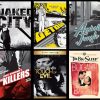
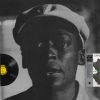


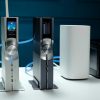


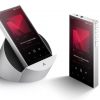


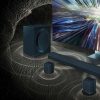








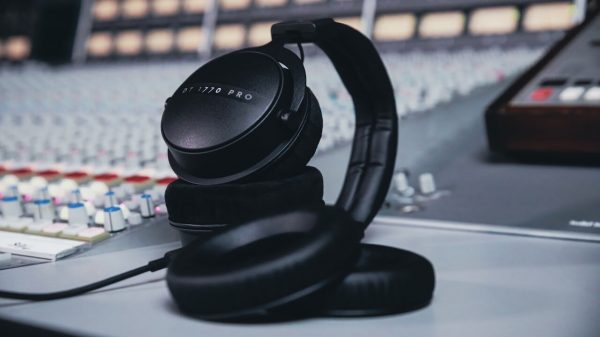
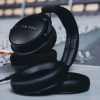
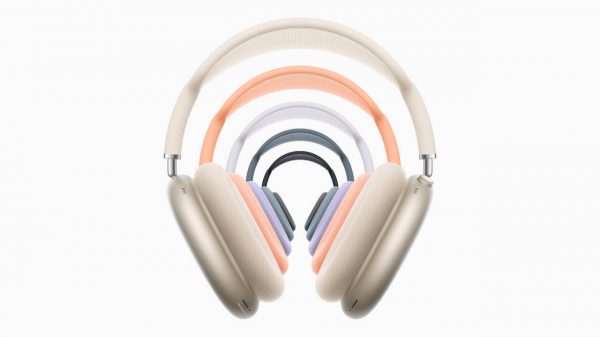

















John
March 10, 2024 at 1:33 am
Did you find any leprechauns on your journey? Funny how this cheap stereotype has endured on your side of the Atlantic but the irony of it is, it’s still thing because it’s used to milk gullible American tourists of their money chasing these mythical creatures.
Not sure what this adds to your otherwise great article other than showing little respect for Ireland.
Maybe a good time to leave this one in the past?
Cheers
Ian White
March 10, 2024 at 3:16 pm
John,
Having been friends with Chris for almost 24 years, I can tell you that you will not find a man who loves being Irish more than him. Last year, he returned to Ireland with his son to have a memorial for his father, who was also a very proud Irishman with deep roots. I find your comment rather off. And maybe just focus on the quality of his article.
I think Chris loves being Irish almost as much as I love being Jewish/Israeli. And that’s saying a lot.
Ian White
Chris Boylan
March 10, 2024 at 10:22 pm
Ian,
I take that as high praise. Thank you. And though the jury is out on whether leprechauns exist, it’s quite clear that trolls do. 🙂
Ian White
March 11, 2024 at 9:27 pm
Chief,
I’m kinda sold on the leprechaun thing. 🙂
IW
Chris Boylan
March 10, 2024 at 10:13 pm
Sadly no leprechauns this trip. But I did keep my eyes peeled. My relations (sorry “mo mhuintir”) do swear they heard the howl of a banshee the night my grandmother passed though. And my grandfather frequently told us stories about the faerie folk when we were young.
Did you know a survey by Cooley Whiskey in 2011 found that 1/3 of Irish people surveyed believed that leprechauns exist? I’m guessing from your comment that you are not one of them.
https://www.irishcentral.com/roots/irish-people-believe-leprechauns-exist
Good day to you, sir. I said GOOD DAY!